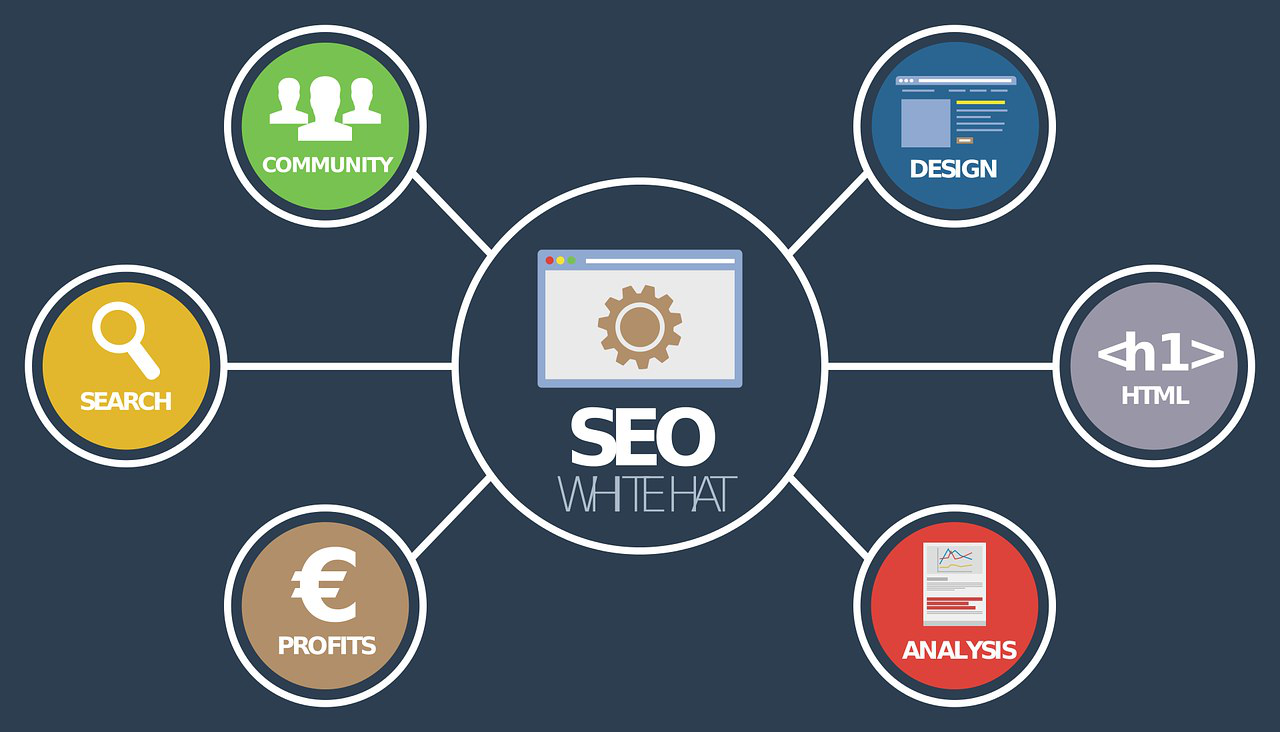Search Engine Optimization

What is Search Engine Optimization?
SEO means “search engine optimization.” It’s the practice of enhancing both the quality and quantity of website traffic and exposure to your brand, through non-paid (also known as "organic") search engine results.
Regardless the acronym, SEO is as much about people as it is about search engines themselves. It’s about understanding what people are looking for online, the answers they are seeking, the words they’re using, and the type of content they wish to use. Knowing the answers to these questions will give you permission to connect to the people who are searching online for the solutions you offer.
If you know the intent of your audience then it is one side of the SEO coin, while the other hand is of delivering it in a way search engine crawlers can find and understand. In this guide, expect to learn how to do both.
Search engines are answer machines. They scour billions of pieces of content and discover thousands of factors to know which content is most likely to answer your query.
Search engines do all of this by discovering and cataloguing all available content on the Internet (web pages, PDFs, images, videos, etc.) via a process known as “crawling and indexing,” and then ordering it by how well it matches the query in a process we refer to as “ranking.”
What is History of SEO?
Search engine optimization (SEO) revolves around Google today very quickly. However, the practice we now know as SEO actually is much before the world’s most popular search engine co-founded by Larry Page and Sergey Brin.
However, it could be argued that SEO and all things search engine marketing began with the launch of the first website published in 1991, or we can say that when the first web search engine launched, the story of SEO “officially” begins a bit later, around 1997.
According to Bob Heyman who is the author of “Digital Engagement,” we can thank none other than the manager of rock band Jefferson Starship for helping give birth to a new field that we would grow to know as “search engine optimization.”
You see, he was quite upset that the official Jefferson Starship website was ranking on Page 4 of some search engine at the time whoever it should rank in Position 1 on Page 1.
Granted, there is possibility that we never know if this tale is more revisionist history or 100 percent fact, all signs definitely point to the term SEO originating around 1997.
By going through a more hunting around and you’ll see John Audette of Multimedia Marketing Group was using the term as early as February 15, 1997.
Ranking high on search engines in 1997 was totally a pretty new concept. It was also very directory taken into existance. Before DMOZ fueled the original Google classification, LookSmart was powered by Zeal, Go.com was its own directory, and the Yahoo Directory was a major player in Yahoo Search.
If you do not know DMOZ, the Mozilla Open Directory Project (remember, Mozilla was a company and Moz was a brand well before SEOMoz), as a basic it was a Yellow Pages for websites. Which is what Yahoo was originally founded upon, the ability to find the best websites out there as approved by editors.
I started doing SEO in 1998, as a need for our clients who have built cool sites but were getting very less traffic. Little did I know, it would become a lifestyle.
Then again, the World Wide Web was still a totally updated and new concept at the time to most people.
How SEO works?
Sometimes you may think of a search engine as a website which you visit to type (or speak) a question into a box and Google, Yahoo!, Bing, or whatever search engine you're using magically replies with a long list of links to webpages that could potentially answer your question.
That's true. Bur did you ever had experience stopped to consider what's behind those magical lists of links?
Here's how it works: Google (or any search engine you're using) has a crawler which goes out and gathers information and data about all the content writing they can find on the Internet. The crawlers bring all those 1s and 0s back to the search engine to build an index. That index is then fed through an algorithm that tries to match all that data with your query.
What goes into SEO?
For understanding the true meaning of SEO, let's break that definition down and look at the parts:
- Quality of traffic. There is possibility that you can attract all the visitors in the world, but if they're coming to your site because Google tells them you're a resource for Apple computers when really you're a farmer selling apples, that is not quality traffic. Besides of this, you want to attract visitors who are genuinely interested in products that you offer.
- Quantity of traffic. When you have the right people clicking through from those search engine results pages (SERPs) then more traffic is better.
- Organic results. Ads make up a significant portion of many SERPs. Organic traffic is any traffic foe which you don't have to pay for.

White hat vs black hat SEO
White hat SEO is apart of the SEO techniques, best practices, and strategies that is under the search engine rule with its primary focus to provide more value to people.
"Black hat SEO" refers to techniques and strategies which is used to spam/fool search engines. While black hat SEO can work, it puts websites at tremendous risk of being penalized and/or de-indexed (removed from search results) and has ethical implications.
Penalized websites have bankrupted businesses. It's just another reason to be very careful when choosing an SEO expert or agency.
What are Benefits of SEO?
The digital landscape has changed dramatically over the past few years, but SEO still remains an effective and important marketing strategy. While there are many benefits to a good SEO strategy, we have mentioned here the top 5 which will help you to understand (or remind you!) why SEO is awesome.
Increased Traffic Top positions on the search engine result pages receive a majority of the impressions and clicks, so ranking in these top positions can result in significant traffic increases for your website. SEO also focuses on creating informative and keyword relevant title tags and meta descriptions, which show up in the result pages. Having optimized tags and descriptions helps to increase the click-through rate, which also promotes increases in qualified web traffic.
ROI SEO provides trackable and quantifiable results, regardless of whether you are an e-commerce or non-e-commerce site so there are no qualms when it comes to ROI. SEO agencies are able to track nearly every aspect of their SEO strategy, like increases in rankings, traffic, and conversions. Comprehensive analytics also provide the ability to drill down at a granular level and see demographic information and other engagement metrics for individuals who have interacted with your website. E-commerce sites, SEO agencies can see which paths users take in order to complete a sale, all the way down to which keyword they used to search for you prior to purchasing. For non-E-commerce sites, you can attribute values to your lead conversions, like a ‘contact us’ form fill-out, and calculate the value of your SEO strategy that way.
Cost-effectiveness SEO is one of the most cost-effective marketing strategies because it targets users who are actively looking for your products and services online. SEO’s inbound nature helps businesses save money as opposed to outbound strategies like cold-calling. While cold-calling can still be an effective strategy, the leads generated cost 61% more than leads generated by an inbound strategy like SEO. And since SEO also targets users who are actively searching for products and services like yours, the traffic resulting from SEO is more qualified than many other marketing strategies, resulting in cost-savings for companies.
Increased site usability – In an effort to make your website easier to navigate for the search engines, SEO simultaneously helps to make your website more navigable for users as well. SEO consists of rearranging the site’s architecture and links to make pages within the website easier to find and navigate. This not only makes it easier for search engines to crawl your site and find pages but also makes it easier for users to find information on your website as well.
Brand Awareness – Since top position rankings result in significant impressions, having your website in these top positions on the result pages translates to more exposure for your website. Plus, being on the first page for your targeted keywords not only helps users to associate your brand with those keywords, but it instills trust since companies on the first page are generally perceived to be more trustworthy. The more your pages and content rank in high positions in the search engines, the more chances you have for users to see your content and associate with your brand.
